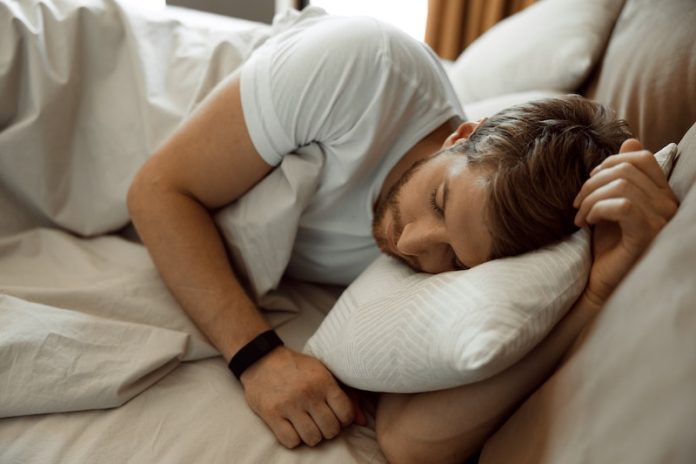
Understanding Sleep, Breathing, and the Heart
Sleep apnea, a condition where an individual’s breathing repeatedly stops and starts during sleep, has more implications on our health than just a night of interrupted rest.
It’s particularly concerning for those who have experienced a heart attack or stroke because studies are revealing a potential lifeline in mitigating future crises.
This lifeline comes in the form of a CPAP machine, a device designed to keep airways open during sleep, potentially safeguarding the heart.
Dr. Ferran Barbe and his research team have shared insights that consistently using a CPAP machine reduces the risk of a second heart attack or stroke by 31%.
However, consistency is key. The protective qualities of the CPAP machine only come into play when it is used for a minimum of four hours each night, though six hours is recommended for optimal effectiveness.
Subheading 1: Piecing Together Research and Finding Consistency
When we delve into the specifics of the study, which examined the outcomes from nearly 4,200 patients through 24 previously conducted studies, a critical pattern emerges.
All patients involved had experienced a cardiovascular event (such as a heart attack or stroke), were diagnosed with sleep apnea, and were using CPAP as a therapeutic intervention.
The finding that stood out was straightforward yet crucial: those who committed to using the CPAP machine for at least four hours each night demonstrated a notably lower likelihood of experiencing a second heart crisis.
It’s vital to emphasize that this isn’t the first time researchers have sought to explore the relationship between CPAP use and cardiovascular events.
There have been multiple studies, especially in Europe, which have illuminated the positive effects of CPAP in preventing death and recurrent cardiovascular events.
However, it’s the consistent, nightly use of the device that has emerged as a pivotal factor in recognizing these benefits.
Subheading 2: Challenges and Alternatives in CPAP Usage
Despite the apparent benefits, utilizing a CPAP machine isn’t without its hurdles. Many users find the device – particularly the mask that must be worn during sleep – to be quite uncomfortable, often resulting in inconsistent use.
This inconsistency, unfortunately, negates the potential protective effects against subsequent heart attacks and strokes.
For those finding it hard to adjust, working closely with healthcare providers to improve comfort and adherence to CPAP usage is a necessary step.
It may involve exploring different mask types or adjusting the settings on the machine to better suit individual needs.
In instances where CPAP usage remains intolerable, alternative therapies may be considered, although their efficacy in protecting against cardiovascular events is yet to be proven to the same extent.
Some of these alternatives include oral appliances designed to advance the jaw and open the airway, various surgical therapies, and even bio-electronic therapies. These may aid in improving airway openness by stimulating relevant nerves.
Subheading 3: Beyond Sleep – A Broader Impact on Health and Life
This study and its findings introduce more than just a dialogue about sleep and subsequent cardiovascular events.
It forces us to look at sleep not just as a restorative process, but as a critical component of our overall health and wellbeing, particularly in the realm of heart health.
The nuanced interplay between our sleep quality and heart health presents itself as an avenue through which we can understand how respecting and prioritizing one aspect of our health (such as ensuring quality sleep) has cascading effects on other facets (like our cardiovascular system).
It’s a conversation about preventative healthcare, about being proactive in utilizing available tools and therapies to not only manage but potentially forestall health crises down the line.
For those living with sleep apnea and navigating life post a cardiovascular event, the consistent use of CPAP might just be a silent guardian, protecting against the recurrence of life-threatening heart and cerebrovascular incidents. It’s a testament to the old adage – prevention, truly, may be better than cure.
In sum, approaching therapies like CPAP with consistency and understanding their broader impact on our health could pave the way for a future where second heart attacks or strokes are mitigated with something as simple, yet profound, as ensuring a good night’s rest.
If you care about sleep, please read studies about herb that could help you sleep well at night, and these drugs could lower severity of sleep apnea by one third.
For more information about sleep, please see recent studies that coffee boosts your physical activity, cuts sleep, affects heartbeat, and results showing how to deal with “COVID-somnia” and sleep well at night.
The research findings can be found in JAMA.
Follow us on Twitter for more articles about this topic.
Copyright © 2023 Knowridge Science Report. All rights reserved.



